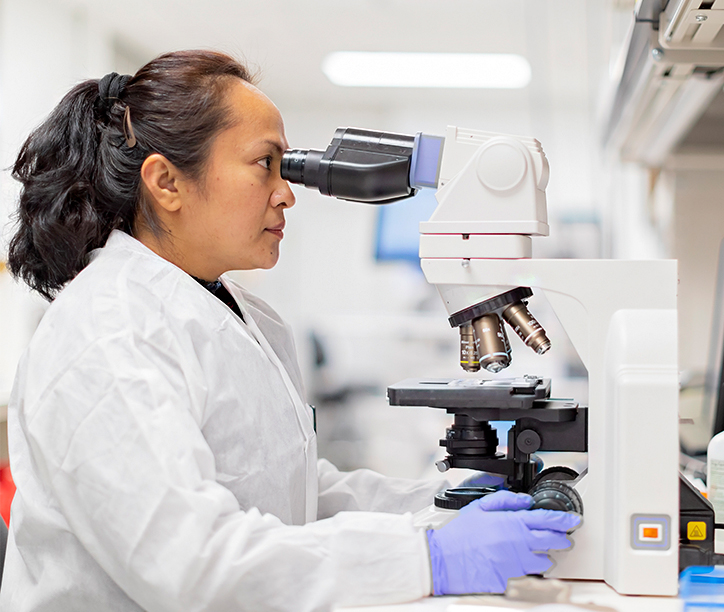GRACIAS Texas Program
- About Us
-
Cancer Care
-
Our Cancer Programs
- Adolescent and Young Adult Cancer Program
- Blood Cancer & Hematological Malignancy Program
- Blood Disorder (Hematology) Program
- Breast Cancer Program
- Cancer Genetics Program
- Cancer Risk Reduction and Education Clinic
- Cardio-Oncology Program
- Childhood Cancer Survivorship Program
- Endocrine Tumor Program
- Eye Cancer Program
- Gastrointestinal (GI) Cancer Program
- Genitourinary Cancer Program
- Gynecologic Oncology Program
- Head and Neck Cancer Program
- Liver Tumor and Cancer Program
- Lung Cancer Program
- Neuro-Oncology (Brain Tumor) Program
- Neurofibromatosis Program
- Pediatric Neuro-Oncology Program
- Pediatric Oncology Program
- Pediatric Sarcoma Program
- Pediatric Thrombosis Program
- Radiation Oncology
- Sarcoma Cancer Program
- Skin Cancer Program
- Supportive Cancer Care Program
-
Screening and Diagnosis
- Cervical Cancer Screening Guidelines
- Colorectal Cancer Screening
- Endometrial (Uterine) Cancer Screening Guidelines
- Hepatitis and Cancer
- HPV Vaccine and Screenings
- Liver Cancer Guidelines
- Lung Cancer Screening
- Mammogram
- Ovarian Cancer Screening Guidelines
- Prostate Cancer Screening Guidelines
- Skin Cancer Screenings
- Sun and Skin Safety
- Tobacco Use and Cancer
- Skin Cancer Screenings
- Cancer Genetics Program
- Cancer Survivorship Program
- Cancer Treatments
- Conditions
-
Our Cancer Programs
- Clinical Trials and Research
- Donate and Volunteer
- Education
- Patients and Families
- Appointments
- Doctors and Locations
-
Community Outreach and Engagement Program
- Message from COE Leadership
- South Texas Cancer Burden and COE Areas of Work
- Our COE Impact
- COE Community Advisory Board
- COE Publications
- Avanzando Caminos (Leading Pathways) Study
- Estudio Avanzando Caminos (Leading Pathways)
- San Antonio Firefighters Cancer Prevention Program
- STAR Immunotherapy Study
Genetic Risk Assessment for Cancer In All South Texas (GRACIAS)
It is well known that one of the factors that increase the risk of cancer is family history, especially when cancers occur in multiple family members at a relatively young age, such as when breast cancer occurs at younger than 45, or colon cancer at younger than 50.
A genetic risk for breast cancer can be associated with other cancers including ovarian, prostate or pancreatic cancer in adults, and, less commonly, in children. When breast and ovarian cancer develops in the same woman or within a family, it raises a strong concern for a genetic risk.
A genetic risk for colon cancer can be associated with other cancers of the uterus or ovaries. The presence of multiple polyps in the colon (polyposis) also suggests a genetic risk.
Our GRACIAS Texas program provides assistance to individuals living in the broad region of South Texas, including rural and border regions, who are concerned that they may have a hereditary risk of cancer and are interested in better defining their risk. We provide services, including genetic counseling, through telehealth or in-person appointments.
Initial consultation consists of a brief, introductory questionnaire, followed by a discussion with a genetic counselor. In some cases, genetic testing is recommended. Financial assistance is available in many situations.
Your experience
Each patient will receive a one-on-one consultation, either in person or through a telehealth visit. Spanish translation is available with advance notice.
Patients will meet with a board-certified genetic counselor or an oncologist trained in genetic risk assessment and counseling.
When appropriate, patients will undergo genetic testing. All testing will be performed in a commercial laboratory and coordinated through the program. Financial assistance may be available for patients.
Community health care workers are available to coordinate genetic testing for at-risk patients in San Antonio, Del Rio, Edinburg, Harlingen and Laredo.
Additional information on genetic risks for cancer can be found on the National Cancer Institute Genetic Testing Fact Sheet.
Our GRACIAS Texas program is funded by a grant from the Cancer Prevention and Research Institute of Texas (PPP160011).
Understand your genetic risk of developing cancer
If you are interested and would like to know more, please provide your contact information, and we will have our Health Educator contact you.
Referrals in San Antonio and surrounding counties
Find out more about how genetics may affect risk for you or your family by contacting:
Elena Marin, Community Health Worker
210-562-9150
marine3@uthscsa.edu
Fax: 210-562-9174

 Close
Close
